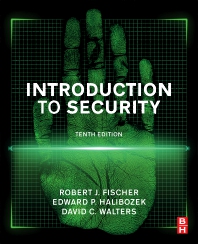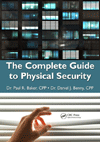54% of teens today do not believe schools are equipped to respond effectively to emergency incidents or mental health needs

<a href='https://www.freepik.com/photos/background'>Background photo created by tirachard - www.freepik.com</a>
The third poll in a series of nationwide surveys conducted by Navigate360 and John Zogby Strategies, a national polling firm, shows the majority (54%) of teens today do not feel prepared to deal with the anxiety of returning to school and do not believe schools are equipped to respond effectively to emergency incidents or mental health needs.
As many students return to the classroom in the coming weeks, physical and social-emotional safety is top of mind. 53% percent of teens reported that they are thinking more about their physical and social-emotional safety than they were six months ago. However, when asked where they felt the least safe, students overwhelmingly selected “My School”, compared to other places, including their after-school job, place of worship, favorite restaurant, or store.
Despite reported increases of anxiety and stress, only 23% of teens believed that their school is prepared to handle mental health issues. 37% of students were confident that their classmates knew what to do in an emergency, and only 35% agreed that their school’s leadership knew how to respond to ensure minimal casualties and loss of life. In the wake of several high-profile shootings, these statistics highlight students’ lack of confidence in their school’s ability to keep them safe.
This poll is the third installment of the Safety and Wellbeing Index conducted by Navigate360 and John Zogby Strategies. The index was created to assess the public’s sentiment on mental and physical safety in the United States. One poll focused on adults, and the companion poll captured the attitudes and beliefs of teenagers aged 16-17. The results show that recent incidents of violence are increasing feelings of fear and anxiety among American teens and taking a toll on their mental health.
Key statistics of the Q2 2021 poll include:
- Only 38% of teens are confident that school officials can create an atmosphere of physical and social-emotional safety in the classroom.
- Half of the teens (49%) and parents (51%) surveyed are aware of a classmate or student who was bullied because of their race, sexual orientation, or income level.
- Only 42% of teens know where and how to report a threat or risk.
- Three in five teens (59%) say they know someone who has considered self-harm or suicide, up three points from the previous poll done in January.
“With schools opening again and the tragic increase in violence across the country, we have a lot of work to do to relearn socialization skills, identify concerning behavior, and react to potential threats of harm in real-time,” said Navigate360 CEO JP Guilbault. “Catching up on learning loss cannot be our singular area of focus this summer and fall. We must actively and proactively work together to create spaces that are safe physically, socially and emotionally.”
A number of questions in the survey illustrate how recent events and tragedies, including numerous recent active shooter incidents, impact teen mental health. 78% of parents with children under 17 report they are worried about the mental health impact of Covid-19 isolation and stress on their children. However, only 62% of parents reported that they talk to their children about mental health issues, with 36% saying they never do. Most notably, while 62% of parents feel that schools have sufficient resources to deal with mental health concerns, less than half of young adults agree.
“The impact of the COVID-19 pandemic and recent shootings have left teens increasingly worried for their safety, especially in school settings,” said John Zogby, who conducted the poll. “The results show that teens have little confidence in their school’s ability to handle issues of mental health, bullying, and physical security. Unaddressed, this could lead to an epidemic of self-harm, suicide, and violence.”
Looking for a reprint of this article?
From high-res PDFs to custom plaques, order your copy today!








